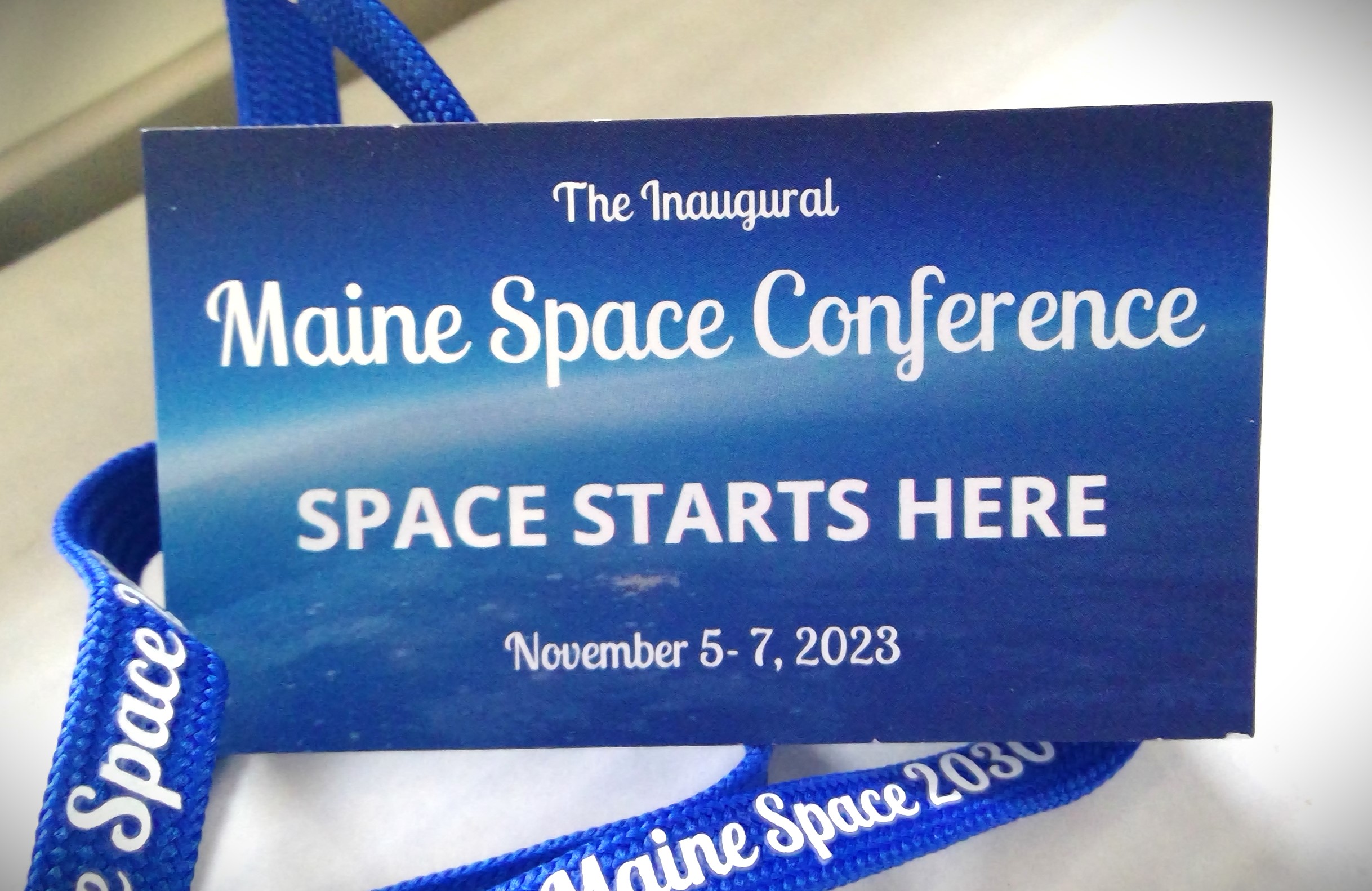The inaugural Maine Space Conference, held last November in Portland, concluded with a see-you-next-year parting remark from Dawn DiBiasi, chair of the Maine Space Corporation.
It was a confident closing message and drew an assenting murmur from the room. Attendees had been convinced, by invited speakers, diverse exhibits, and 23 concurrent sessions, that a prompt follow-up to Maine’s first space conference was the right idea.
Three months earlier, organizers harbored concern they would attract a crowd at all. Registrations lagged behind expectations for longer than anticipated, but fears were short-lived. The conference eventually sold out. Attendance was said to exceed 300.
Maine Space ___________ [fill in the blank]
At the first plenary, Dr. Terry Shehata, executive director of the Maine Space Grant Consortium, made an effort to differentiate five entities bearing names beginning “Maine Space.” Let’s take them one at a time.
Maine Space Grant Consortium
Formed in 1988 and recognized as a nonprofit in 2001, the consortium is part of a national network of space grant programs funded through NASA. Its mission is to improve research infrastructure, encourage students to consider careers in STEM fields, and enhance NASA’s presence throughout Maine. Since 2001, the consortium has invested more than $25 million in space research across the state.
Maine Space Complex
Motivated by a desire to extend Maine’s space program beyond research and into economic growth, the consortium proposed a complex comprising three business units: a space data and advanced analytics center, an innovation hub, and launch sites and services. The consortium drafted a strategic plan for the complex early in 2022.
Maine Space Corporation
Enabled by the 130th Maine Legislature (2022), this quasigovernmental agency was created “to establish the State as a national and international industry destination and an authority in launching small launch vehicles and small satellites into polar orbit.” The corporation’s board began conducting business in June 2023.
Maine Space 2030
This initiative is designed to build awareness, support, and interest in the new space economy. Methods include K-12 educational programs, networking and coalition building, public communication, and the inaugural Maine Space 2030 Conference. Its emphasis is on making Maine a national, environmentally responsible, leading-edge hub for the new space industry, with a particular focus on the small rocket and nanosatellite markets.
Maine Space Conference
The event meant to demonstrate the viability of Maine’s aspirations, the conference showcased Maine’s potential in the evolving space economy.
Shehata said consortium-funded projects to date have been like “marbles in a bag,” lacking integration, and the corporation should help align future investments toward a common end. He also stressed that the business units of the complex are designed to be complementary, but each can develop independently.
Why Maine?
Shehata used his opening remarks also to identify the six assets that make Maine especially attractive to the space industry.
- Polar orbit capability
- Vertical launch facility
- Horizontal launch facility
- Existing supply chain
- Service providers
- Strong STEM and R&D environments.
We will come back to these.

